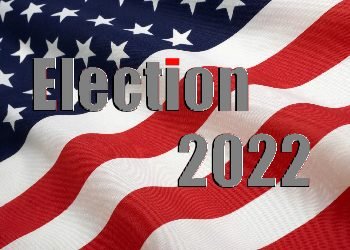Why This Runoff Voter Is Hopeful about Georgia’s Record-Breaking Early Turnout

On a cold early-December morning, I took my place at the back of a long line outside of an unassuming building behind an elementary school. It was a gymnasium and community center known in my small Georgia town as the headquarters of a local wrestling circuit.
Spectators gather there twice per month to show their rowdy support for hometown heroes like Buzz Saw, Demon Master, and Chris Kamikaze as they dropkick, suplex, and pile drive their way to independent wrestling league stardom.
But this morning, a crowd waited with patient calm to voice a much different kind of support. They were part of a record-breaking one million Georgia voters who turned out early to vote in a Senate runoff election which would determine the makeup of the US Congress’ upper chamber and possibly tip the balance of power in Washington.
Coffee thermos in one hand, I lifted the other to close the last inch of my jacket’s zipper against the chilling wind (45 degrees Fahrenheit is mighty cold for us Georgians). As the line stood waiting, voters chatted with each other through chattering teeth, but spirits were high.
A metal folding chair sat empty at the front of the line. On another day, it may have been wielded by a wrestler as he banged the broad side into an unlucky challenger’s back. But today, a paper was taped to the backrest instructing voters to wait there until invited inside.
The queue didn’t move for several wintry minutes, and I noted that the chair looked awfully far away from my position all the way to the rear. Finally, the door opened and a poll worker stepped out. But instead of beckoning the next voter, he made his way down the long line towards me.
Unpinning an official badge from his chest, he tucked it into his pants pocket and took his place in line behind me. “The badge is off. Now I’m one of y’all!” he said.
Suddenly I felt confused, but why? Standing there in slacks and a sweater vest, he looked like any other voter (though maybe a bit underdressed for the weather, I thought). It dawned on me that I’d just witnessed a truly democratic moment.
In a free society where all are equal under the law, even the administrators wait at the back of the line. In an unfree society where the state reigns supreme, one’s position in line is determined by their position within the “political machine.”
Unfree societies operate on a system of privilege where one’s rights are determined by one’s access to the levers of power. Call them what you will—administrative states, nanny states, socialist, communist—but there can be no equality in an unfree society.
Those who welcome the administrative state often wish themselves on the inside of the imaginary line marked that morning by the metal folding chair. In their idealism, they see themselves behind the red tape, among the political upper-class, pulling the levers of power and handing down decrees: “rules for thee but not for me.” To paraphrase George Orwell’s classic allegorical novel Animal Farm, “All men are equal, but some men are more equal than others.”
I believe that most folks who argue for bigger government do so with good intentions. After all, it’s usually with genuine concern that someone shakes their head and starts off, “There ought to be a law…”
But these seemingly harmless prescriptions all fail to account for a fundamental problem of government. With every inch of our freedom that is regulated away, it is the powerless who suffer most, the powerful who suffer less, and the regulators who suffer none at all.
The Nobel Prize-winning economist Milton Friedman said it this way: “A society that puts equality before freedom will get neither. A society that puts freedom before equality will get a high degree of both.”
As the line moved steadily forward and the morning sun began to warm the waiting voters, a thought came to me. In a free society, people line up to cast ballots, try a new restaurant, or purchase the new iPhone. In an unfree society, people line up to be handed bread.
When I finally made it past the metal chair and into the warmth of the gymnasium, I was surrounded by poll workers each overseeing a different part of the process. Taking stock of the bunch, the only thing notable about them was that not a single one of them was particularly notable. They looked like the most “normal” people you’d meet, several of them reminding me of my old high school counselors or librarians, and none wore anything that might differentiate them from another.
I peeked at my phone to see how long I’d been there (31 minutes), and the nearest poll worker quickly but gently reminded me to put it away. The kind lady who addressed me did so with authority, but it didn’t seem that she or any other poll worker had a larger share of it. In a free society, the polling locations themselves are run with an air of democracy—by those whom you’d sooner see sitting in a jury box than on a judge’s bench.
My…
Read More: Why This Runoff Voter Is Hopeful about Georgia’s Record-Breaking Early Turnout

